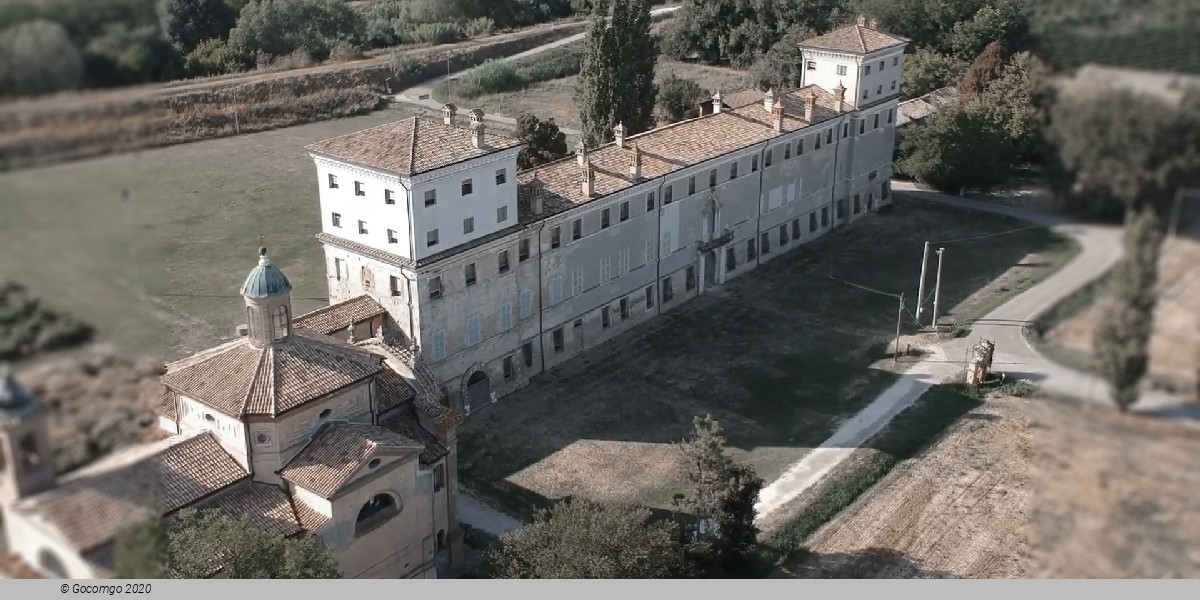Palazzo San Giacomo (Russi, Italy)
Palazzo San Giacomo

The majestic country residence, built for the Count Rasponi in the late 18th century by the right bank of the Montone river, still fascinates the visitor for both its architectural grandeur and the delightful fresco decorations of the interiors.
Built on the ruins of a medieval castle, only 2 kilometres away from the small town of Russi, Palazzo San Giacomo is known as “e’ muraion” in the local dialect. After all, its almost 85-metre long, three-store high façade, including two five-store high side towers, resembles a “great wall”. The architecture mirrors the palace of the House of Farnese in Colorno and the palace of the Estes in Modena, and indeed the building was created as a summer residence for the count Guido Carlo Rasponi, the younger brother of the Cardinal Cesare, who might have designed it. The works were attended to by Filippo, the son, who also took care of the decorations and designed the straight route connecting the palace to the road, to serve as a “triumphal entrance”. The interiors display the largest pictorial cycle in Romagna created between 17th and 18th century, featuring the works of artists such as Philip Jakob Worndle, Ercole Sangiorgio, Giuliano Roncalli, Cristof Worndle, and Andreas Kindermann. In the 19th century the palace turned into a refuge for revolutionaries and their clandestine meetings. In 1947 the building was given to the Seminary of Faenza; then in 1977 it was bought by the Comune of Russi. The appeal of the “noble resort” is enriched by the surrounding area, which has been serving as a stage for plays and concerts for the last decades. The first chance came, at the beginning of the 90s, with the workshops of the Russi-based company “Le Belle Bandiere”. The important maintenance and restoration works were followed by the arrival of Ravenna Festival: the place has become a most perfect venue for special events, starting in 2006 with the premiere of “Ur-Hamlet” created by the great Eugenio Barba.


